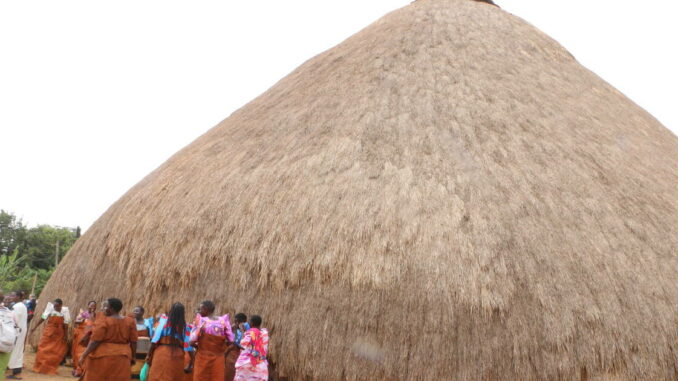
Unesco has removed on September 13 the Kasubi site, home to the tombs of the rulers of Buganda, a traditional kingdom in southern Uganda, from the list of World Heritage in Danger after it was damaged by fire in 2010.
Located in the hills above the capital Kampala, this complex of circular buildings made of wood, reeds and thatched roofs has been listed as a World Heritage Site by the United Nations Educational, Scientific and Cultural Organization (Unesco) since 2001.
In March 2010, a fire largely destroyed the main building, known as Muzibu-Azaala-Mpanga, housing the tombs of four “kabakas” (kings) of Buganda, the country’s first customary kingdom.
The reconstruction program, carried out with the help of international funding, “was successfully completed in the summer of 2023, allowing the site to return to its desired state of conservation”, said the World Heritage Committee, meeting in Riyadh (Saudi Arabia) until September 25.
“This reconstruction is a collective success: that of the Ugandan authorities, of Ugandan heritage professionals, but also of the local communities who were at the heart of the process”, congratulated Unesco Director General Audrey Azoulay, quoted in a press release.
“This is excellent news for the entire international community, at a time when we have made it a priority for World Heritage to give more space to African sites”, she added. Half of the sites on the List of World Heritage in Danger are located on the continent.
The former palace of the “kabakas”, built in 1882 and converted into a royal burial ground in 1884, is “an outstanding example of the architectural style developed by the powerful kingdom of Buganda from the 13th century onwards”, according to Unesco. The fire in 2010 caused a stir among the Baganda, subjects of the Buganda kings and one of Uganda’s main ethnic groups.
